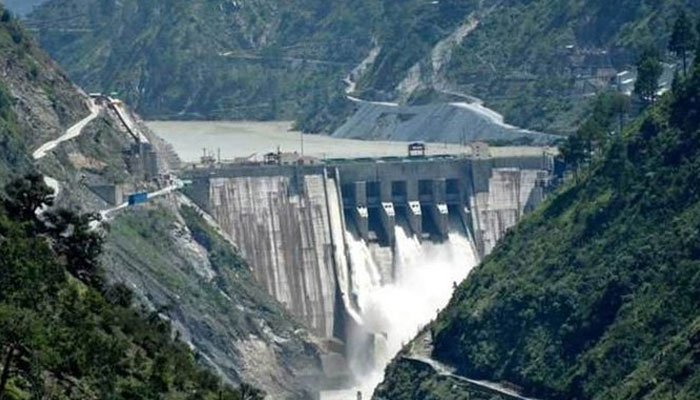
Pakistan termed the design of spillways and free board of Pakal Dul and Lower Kalnai violative of the Indus Waters Treaty. However, India says that designs of the projects are in line with the provisions of Indus Waters Treaty. However, India agreed to hold another meeting on Pakal Dul with Pakistan by May 31, 2022.
Sources said that in the next meeting to be held before May 31 at the PCIW level, if the objections on Pakal Dul are not resolved, then next provisions of the Indus Waters Treaty would be exhausted, meaning that the issues of Pakal Dul will be taken on the government level. If it is not resolved at the government level, then Pakistan will either move the forum of Neutral Expert or International Court of Justice for the solution of the dispute. On the Lower Kalnai project (48MW), Pakistan wants the freeboard to be one meter in length, while India insists on a 2-meter length.
In the meeting, India informed the Pakistan side that the construction work on Lower Kalnai project has been stopped since the last flood damaged it. Now India is going to restart construction work but after its design was reviewed. However, Pakistan asked India to share its reviewed design on time and the Indian side responded positively.
Both sides spent the last day in finalizing and signing the minutes of the proceedings and the decisions agreed in three-day negotiations. This was the 117th meeting between the two countries at the PCIW level.
In the meeting, both parties discussed Pakistan’s question furnished under Article-IX on Pakal Dul and Lower Kalnai (48MW). Pakistan also raised objections on Tamasha Hydro Electric Power (HEP), Kalaroos-II HEP, Baltikulan Small, Darbuk Shyok HEP, Nummu Chilling HEP, Kargil Hunderman HEP, Phagla HEP, Mandi HEP, and Kulan Ramwari HEP. Most of these projects are being built on Pakistan’s main river Indus in Laddakh. Pakistan also sought the data on above-mentioned small hydropower projects of 25 MW each being constructed on Pakistan rivers. The Indian side said that the state governments are constructing these small projects and it will get the required data from them, which will later be shared with Pakistani authorities. The Indian side also said that it has shared some data about the small projects with Pakistan till February 24, 2022 and the Pakistan side acknowledged it.
Both sides also discussed the sharing of flood data, program of meetings and tours of PICW for the current calendar year 2022. During the talks Pakistan asked India to restore sharing of the flood data based on humanitarian grounds, which New Delhi continued to share from 1989 till 2018 and then started reducing the share of data with Pakistan in 2019. Pakistan pleaded that the flood data sharing is imperative for the Pakistan side to come into action on time to avoid catastrophic impact of flood on human lives. "The Indian side has agreed to restore the sharing of flood data on time, so that the Pakistan side could have ample time to help save human lives."
Both sides have also finalized the tours and meetings to be held in 2022 under the PCIW level and, to this effect, Pakistan asked India to also include a special visit of Kiru Hydropower project under the provision of Indus Waters Treaty. India agreed to arrange a visit to the Kiru project. The official said that Pakistan in August last year had pinpointed some observations about the design of the Kiru project with the capacity to produce 624 MW of electricity being erected on the Chenab River and sought some clarifications. India gave some clarifications, but Pakistan again raised some queries. India says that Pakistan should submit its queries on the project in written form and New Delhi will respond in 15 days' time. The Indian side raised the issue of storm drainage nullah namely Fazal Ka nullah, which enters Sutlej on Pakistan side from eastern Punjab in India.